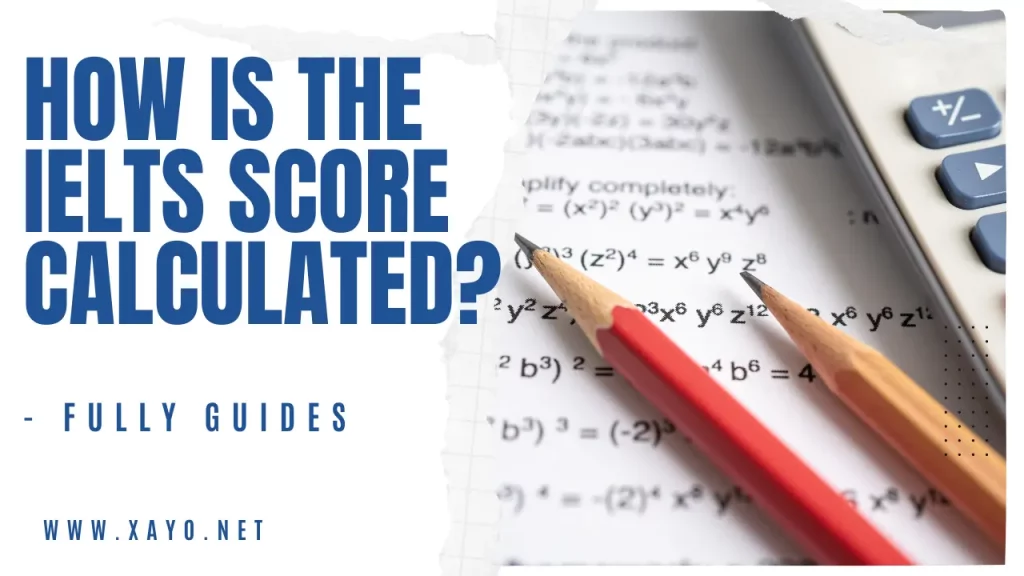To learn how to calculate the IELTS score, you need to get information about how to conduct this test and its different parts. Let us first explain about the IELTS test.
The IELTS test is one of the most prominent international tests and one of the most essential tests in the world, which the University of Cambridge, England, designs yearly. It is organized by two organizations, the British Cultural Council and the Australian IELTS Center. It is interesting to know that according to the immigration offices of the United Kingdom, Australia, Canada, New Zealand, Ireland, and Scotland, the IELTS test is an approved language certificate.
This test evaluates the skills of all candidates in four parts: Reading, Listening, Speaking, and Writing. The IELTS test does not have a pass or fail score but evaluates candidates based on the type of universities they attend and their acceptance. An IELTS result or test report form is issued for all test participants with a score of 1 (beginner) to 9 (advanced), and each institution sets a different threshold. Institutions are advised to consider reports up to two years as valid. A score of zero on this test is considered for a candidate who did not take the test.
How Is The IELTS Score Calculated?
In the IELTS test, a separate score from zero to nine is considered for the four skill sections of listening, reading, speaking, and writing, and the value of each of these scores is equal. For this reason, the overall IELTS score is calculated from the sum of these four scores and their average.
How to calculate the test score is determined by the number of correct tests in the test. The following table guides in calculating the test result by separating the 4 test topics:
IELTS Listening Scores
| Band Scores | Correct Answers |
| 39-40 | 9 |
| 37-38 | 8.5 |
| 35-36 | 8 |
| 32-34 | 7.5 |
| 30-31 | 7 |
| 26-29 | 6.5 |
| 23-25 | 6 |
| 18-22 | 5.5 |
| 16-17 | 5 |
| 13-15 | 4.5 |
| 11-12 | 4 |
IELTS Reading Scores (Ac)
| Band Scores | Correct Answers |
| 39-40 | 9 |
| 37-38 | 8.5 |
| 36-35 | 8 |
| 33-34 | 7.5 |
| 32-30 | 7 |
| 27-29 | 6.5 |
| 26-23 | 6 |
| 22-19 | 5.5 |
| 15-18 | 5 |
| 13-14 | 4.5 |
| 10-12 | 4 |
| 8-9 | 3.5 |
| 6-7 | 3 |
| 5-4 | 2.5 |
IELTS Reading Scores -General
| Band Scores | Correct Answers |
| 40 | 9 |
| 39 | 8.5 |
| 37-38 | 8 |
| 36 | 7.5 |
| 34-35 | 7 |
| 32-33 | 6.5 |
| 30-31 | 6 |
| 27-29 | 5.5 |
| 23-26 | 5 |
| 19-22 | 4.5 |
| 15-18 | 4 |
| 12-14 | 3.5 |
| 9-11 | 3 |
| 6-8 | 2.5 |
How Is The IELTS Test Score Rounded?
As we explained in the above paragraph, the IELTS test score is obtained from the sum of the scores of the four sections and then rounded to the nearest score. For example, if the overall score of the IELTS test is five and twenty-five hundredths, it will be rounded to half a score.
Consider the following example:
A: Listening: 6/5, Reading: 7, Writing: 6/5, Speaking: 5
Overall: (7+6/5+5+6/5)/4=6.25, Band=6.5
What Is The Total Score Of The IELTS Test?
The total score of the IELTS test is a question that many IELTS candidates ask. The IELTS scoring system has its own rules and framework. The method of calculating this test is based on the Band system. As we said earlier, the total score for the IELTS is nine, and the scores for each skill section are rounded.
What Level Of Ability Does Each Score In The IELTS Test Show?
- Zero score: This score is the lowest IELTS score, which has no evaluation criteria.
- Score 1 indicates no ability to use the language for more than a few words.
- Score two indicates that vocabulary information could be more essential.
- Score three: This score indicates the ability to understand general concepts in familiar everyday situations and frequent pauses or stops while speaking.
- Score four indicates limited talents and capabilities and an inability to use complex words and language.
- Score five shows the candidate’s relative skill and understanding in different situations. Of course, there are many mistakes.
- Score six: Despite the inconsistencies and carelessness, the candidate still has practical language skills. This volunteer has an excellent ability to understand the material and various situations.
- Score seven: Obtaining this score shows the candidate’s ability to use English in different situations. Of course, there are mistakes from time to time.
- A score of eight indicates a relatively high ability in English language skills. Of course, there are some mistakes.
- Score nine: As you know, this score is the highest score on the IELTS test, which indicates high ability in English language skills without any mistakes.
Scores Of Different Skills In The IELTS Test
As we explained at the beginning of the article, each part of the IELTS test skills is examined thoroughly separately and has its scoring. Of course, all the scores are added together at the end, and the average of four skill scores is obtained.
- Listening Section
The IELTS listening section has 40 questions, each with one mark. Although this test does not have a negative score, it still requires a lot of accuracy and concentration. The score you get out of 40 is calculated from the total score.
- Reading Section
This part has forty questions, as in the listening part. Each question has one mark. Academic and general exams are corrected similarly, but for academic exams, the words and questions are slightly more specialized and complex.
Reading IELTS has 40 questions, as mentioned in the previous stage, and each question has a maximum score. The General and Academic Reading tests are graded similarly, but the academic test uses slightly more complex and specialized words.
- Writing Section
For the written part of the IELTS test, candidates are evaluated in four specialized and general subjects. It is essential to successfully answer the questions of subjects one and two and observe the coherence between them.
The four optional subjects each have an equal score, which is finally averaged at the end of the exam and the sum of the scores.
- Speaking Written Part
In the speaking part of the IELTS test, the fluency of the candidates’ speech, vast vocabulary, accuracy, and attention to grammatical points are essential. This section also has four topics. The grades of all four sections are equal, and at the end, the average of all their grades is taken to get the primary grade.
For example, how does IELTS score in the speaking section?
The IELTS speaking section consists of 3 different sections, the level of which changes from easy to difficult.
In the first part, you must answer simple questions about everyday topics such as work, food, travel, etc.
In the second part, you have to talk for two minutes about your favorite or specific topic.
In the third part, you must answer several questions about the topic you discussed in the second part.
Scoring in the speaking section of the IELTS test is evaluated based on four specific factors, each factor making up twenty-five percent of your total score.
In this section, attention is paid to certain factors, which include:
- Speaking fluently according to the specified time
- Speaking without pauses
- Speaking without repeating mistakes
- Ability to understand the examiner’s speech
- Using communication elements
- Using different terms and vocabulary
- Observance of order and turn
- Less use of standard and conventional sentences and words and instead use of terms and proverbs and literary sentences
- no error
- Proper use of grammar in appropriate places
- Using appropriate structures and roles in the sentence
- Using grammar and different tenses in the sentence
- Pronounce words correctly and speak clearly and understandably
- Use appropriate tone in sentences
- Use broad synonyms with correct pronunciation and inappropriate place
What Resources Should We Use To Prepare For The IELTS Test?
To be sufficiently prepared to participate and succeed in the IELTS test, it is better to study the best IELTS test resources. If you want to know more about the critical resources of the IELTS test, read the article ” The best resources of the IELTS test. “
Is It Necessary To Get An IELTS Teacher To Succeed In The IELTS Test?
Since many people find it challenging to study the resources before the IELTS test and need to know which part of the book is more important, it is better to use the knowledge of experienced professors in this field.
To succeed in the IELTS exam and avoid rework and spending extra money, taking a private class according to your language level for IELTS exam preparation from the beginning is better. In this way, you can fix your weaknesses more easily.
Video – How Is The IELTS Score Calculated?
Conclusion
Now that you are familiar with the scoring system of the IELTS test, if you want to prepare for this test, you must try to study according to the evaluation and scoring of this test.
It means that you should first focus on the points that are very important in the IELTS test. Although all skills and sections of the IELTS test are equally important, speaking fluently and using a wide range of vocabulary can be an advantage for you.






